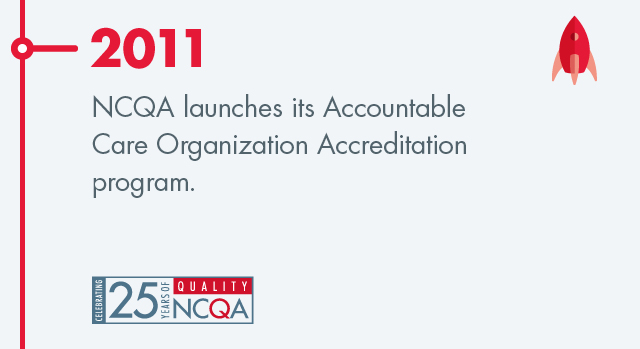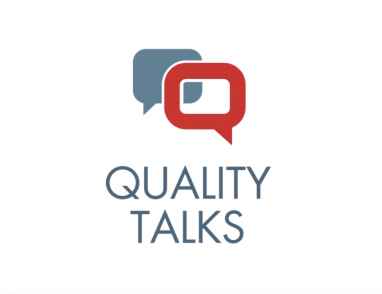2011: NCQA Launches its Accountable Care Organization Accreditation Program
December 18, 2015 · NCQA Communications
25 for 25 Quality Timeline Blog Series

Accountable Care Organizations (ACO), a type of delivery reform payment model that ties provider reimbursements to quality metrics, have the potential to get better quality at lower cost by aligning incentives to promote coordination and transform the way people get their health care. But not every group of providers has what it takes to get the job done.
That’s why NCQA launched its Accountable Care Organization Accreditation program in 2011. The program provides a roadmap for helping providers make the challenging transformation into ACOs. The program aligns with the common expectations of private purchasers and many of the expectations the Centers for Medicare & Medicaid Services (CMS) has for the Medicare Shared Savings Program.
NCQA’s ACO Accreditation program provides different levels to signal different degrees of readiness—to share savings and financial risk and to report and improve on quality. Evidence-based standards help identify ACOs that are most likely to deliver health care savings and improved outcomes. NCQA evaluates health care organizations in seven categories: structures and operations; access to needed providers; patient-centered primary care; care management; care coordination and transitions; patient rights and responsibilities; and performance and quality improvement.
NCQA’s ACO Accreditation program allows multiple payers to support ACOs and make the ACO concept workable. The ACO standards are designed to optimize the likelihood of success and to reassure consumers.








